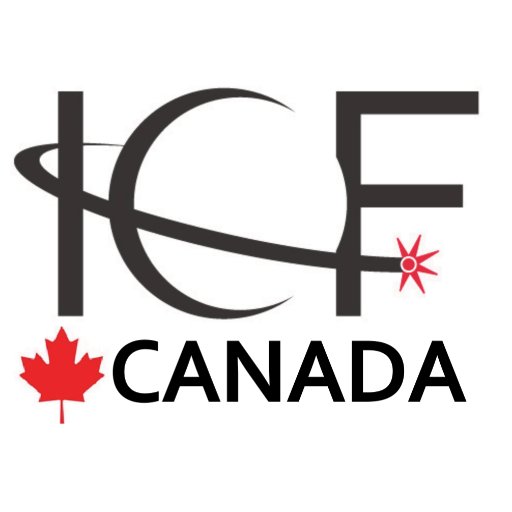Webinar: Connecting Education to Innovation
The ICF Innovation Triangle depends in part on the active engagement of educational, cultural and other institutions, with universities and colleges the most frequent partners. What are the secrets of effective engagement with educational institutions that yield genuine progress at innovation? This Webinar explains the necessary steps in identifying opportunities, building trust and generating real collaboration among educators, business and government.
Keynote: Education and the Intelligent Community
 Presenter: Robert Bell, Co-Founder, ICF
Presenter: Robert Bell, Co-Founder, ICF
It is generally accepted that the opportunity to create healthy and productive citizens begins in infancy and continues throughout our lives, ranging from pre-school programs to secondary school, technical colleges to graduate schools.
Local governments control only some of these assets, so it must seek opportunities to collaborate with many levels of government, business and institutions. It may have to work with partners outside the region as well and provide them with motivation to bring educational assets – from enrichment programs to satellite campuses – into the community.
The final piece of the puzzle is the “last mile” from graduation into employment. In Intelligent Communities, local government works closely with schools and employers to give students first-hand experience of career opportunities and develop specialized courses to prepare students for careers in the community’s leading and emerging industries. The more that educational institutions extend their ambitions into employers – and that employers open themselves up to educators – the more prosperous the community will be.
In his presentation, ICF co-founder Robert Bell will share stories of intelligent communities using education to pave the way to prosperity in the 21st century economy.
Case Study: Winnipeg, Manitoba, Canada
 Located at the midpoint between East and West Coasts, Winnipeg is the capital of a province rich in agricultural and natural resources. In the 21st Century, the city is pursuing economic growth by better connecting industry and education, while better equipping its large aboriginal population for opportunity.
Located at the midpoint between East and West Coasts, Winnipeg is the capital of a province rich in agricultural and natural resources. In the 21st Century, the city is pursuing economic growth by better connecting industry and education, while better equipping its large aboriginal population for opportunity.
Winnipeg has formed partnerships linking employers like Canadian Tire to the University of Winnipeg, an ICT association and other public-private groups to improve the supply of skilled employees. The city has also developed programs, such as the Digital Voices Project, which originated at Winnipeg’s largest secondary school and provides students with digital skills training and supports them in building personal, familial and cultural stories across multiple media. The University has established a drop-in facility for inner-city residents, the Wii Chiiwaakanak Learning Centre, where visitors benefit from free computer access as well as academic, traditional language and homework help programs.
Click here to learn more about Winnipeg
Joining the Webinar from Winnipeg will be Greg Dandewich, Senior Vice President, Economic Development Winnipeg and Edward Suzuki, Director, Market Intelligence, Economic Development Winnipeg.
 Greg has been with EDW since 1994 (known then as Winnipeg 2000). His wealth of experience in economic development, within both urban and rural contexts, positions him well to provide leadership and strategic direction to the entire economic development team. Greg excels at relationship building, facilitating strategic partnerships, coordinating industry and sector initiatives, and forging substantive collaborations between the public and private sectors. With a master’s degree in city planning from the University of Manitoba and a diploma in economic development from the University of Waterloo, his background, proven track record and unrivaled experience in this role make him an invaluable resource for the community.
Greg has been with EDW since 1994 (known then as Winnipeg 2000). His wealth of experience in economic development, within both urban and rural contexts, positions him well to provide leadership and strategic direction to the entire economic development team. Greg excels at relationship building, facilitating strategic partnerships, coordinating industry and sector initiatives, and forging substantive collaborations between the public and private sectors. With a master’s degree in city planning from the University of Manitoba and a diploma in economic development from the University of Waterloo, his background, proven track record and unrivaled experience in this role make him an invaluable resource for the community.
 Ed has been with EDW since 1999. He is responsible for research and analyses that targets companies considering a relocation or expansion into Winnipeg. His role includes the management and preparation of the following profiles: local, regional and global economic trends; industry sectors; key economic indicators; and business information. With a master’s degree in city planning from the University of Manitoba, Ed conducts ongoing strategic research projects in collaboration with industry and government stakeholders.
Ed has been with EDW since 1999. He is responsible for research and analyses that targets companies considering a relocation or expansion into Winnipeg. His role includes the management and preparation of the following profiles: local, regional and global economic trends; industry sectors; key economic indicators; and business information. With a master’s degree in city planning from the University of Manitoba, Ed conducts ongoing strategic research projects in collaboration with industry and government stakeholders.
February 22, 2017 at 11am – 12pm | Eastern Time (US & Canada)
